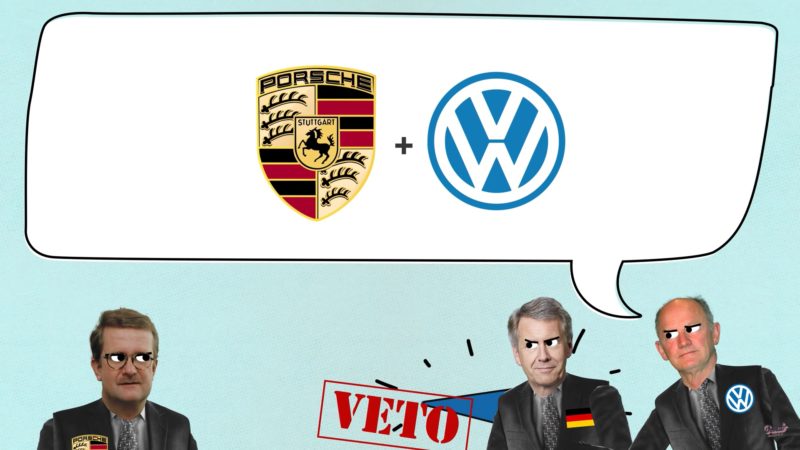
Back in in the mid-2000s Porsche was riding high on several years of massive profits. Since the 1997 introduction of the Porsche Boxster, the company had been cleaning house. The 986/996 sports cars were Porsche’s most successful cost-cutting measures all time, and they sold like hot cakes. Then came massive successes with expansion of the model line, introducing the Cayenne in 2003, the Cayman in 2005, and the Panamera in 2008. The company was on a roll, and as the most profitable car company in the world, it had money to burn. It used those cash reserves to buy massive stakes in long-time strategic partner Volkswagen. At one point, Porsche owned as much as 74 percent of the German giant.
If you’re familiar with hedge funds and short selling [which let’s face it, this is a Porsche blog, of course you’re familiar with those things], you’ll already know how this story goes. It’s like the Gamestop “Stonks” episode which we all saw play out over the last few months as the value of the company increased, squeezing short sellers and boosting share value further. Volkswagen was hemorrhaging cash in 2005, and in what it said was an effort to keep VW independent, Porsche purchased 20 percent of the company. Short sellers leveraged against VW in the coming years, but Porsche was secretly buying ever larger segments of the company. By the time it had amassed 70 percent ownership of VW, shorts were over leveraged, and had to buy at any price possible, jumping the stock’s value overnight.
If that all sounds complicated, check out Donut’s video on the story right here. It’s a wild ride, and one you really need to know as a Porsche enthusiast.
Ultimately Porsche had a plan to buy out VW, but the German government stepped in and stopped the sale. In the end, Porsche merged with VW, the German government retained its stake in both companies, and Qatari investors bought a huge chunk. In the intervening years both VW and Porsche have expanded to heights before not seen as possible, and through that collaboration both companies have become better versions of themselves. That’s called growth. Stonks.
